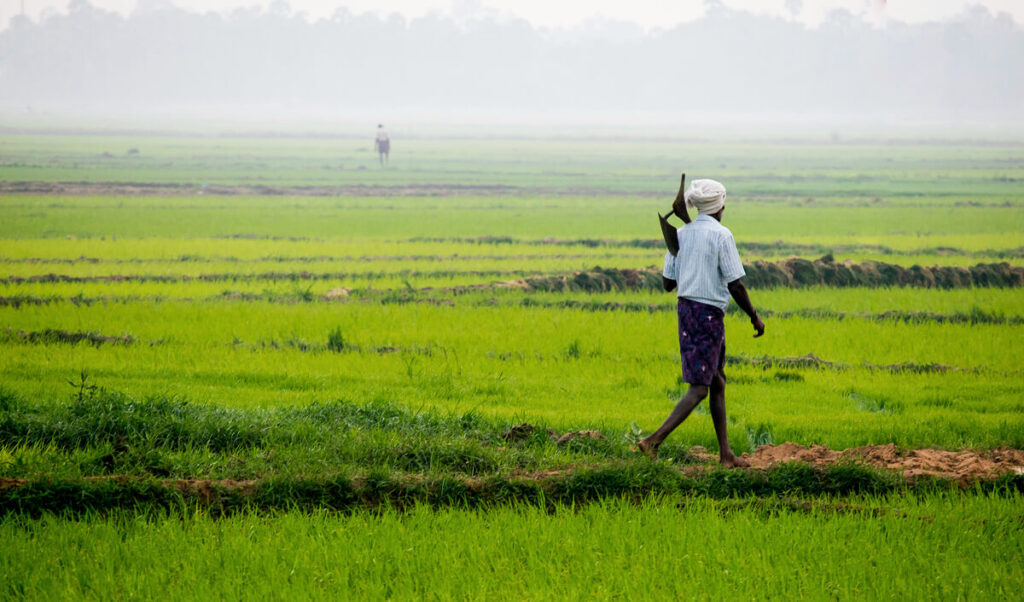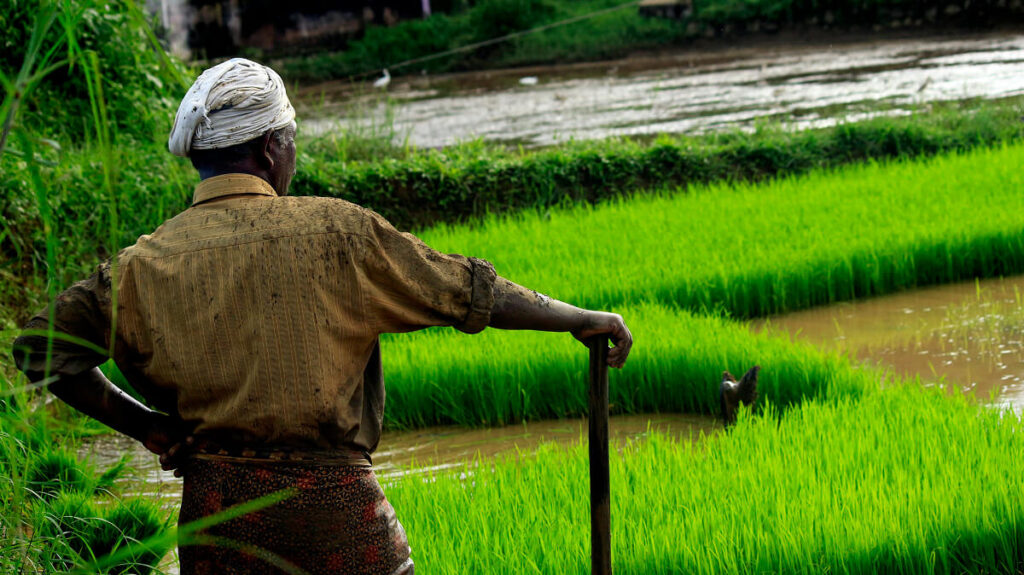Indian Farmer's Refugee Appeal Fails
July 20, 2025
Ulaganathan v. Canada (Citizenship and Immigration), 2025 FC 126
The recent Ulaganathan v. Canada (2025 FC 130) ruling from the Federal Court offers important insights into how Canada’s legal system evaluates refugee claims and the concept of internal flight alternatives (IFAs). This case, which focuses on individuals seeking refuge from persecution in their home countries, clarifies how courts interpret options for relocating safely within a claimant’s own country. It also highlights the role of judicial review in ensuring fair treatment. We’ll now delve into the case’s background, key facts, the court’s decision, and its connection to past legal precedents.

Ravichandiran Ulaganathan's Story
Ravichandiran Ulaganathan, a Tamil farmer from Tamil Nadu, India, sought refugee protection in Canada due to his well-founded fear of persecution upon his return to India. Ulaganathan’s claim stemmed from years of oppression and harassment faced at the hands of upper-caste landlords in his home village due to his employment of Dalits, a lower caste group. His progressive stance of hiring Dalits on his farm to work alongside upper-caste laborers was seen as a provocation to the entrenched caste hierarchy in the region.
The persecution he faced culminated in violent confrontations with landlords who falsely accused him of involvement in communal violence and other criminal activities. In 2018, he was detained and beaten by local police officers who were allegedly acting under the influence of these landlords. After a legal intervention by his wife, Ulaganathan was released, but his fear of returning to the area remained, prompting his flight to Canada.
The Appeal Decision (RAD)
Upon seeking asylum in Canada, Ulaganathan’s refugee claim was initially rejected by the Refugee Protection Division (RPD). He appealed this decision to the Refugee Appeal Division (RAD), where the central issue revolved around the potential availability of an Internal Flight Alternative (IFA) in major cities like Delhi and Mumbai. An IFA is a legal concept that evaluates whether a claimant could reasonably relocate to another part of their home country to avoid persecution.
The RAD’s decision was based on an analysis of whether Ulaganathan would face persecution in these alternative locations, considering factors such as his caste, socio-economic background, and lack of a support network in the proposed areas. The RAD found that the persecution Ulaganathan faced was localized to his village and that relocating to the larger cities would not expose him to similar risks. Consequently, the RAD dismissed his appeal.
Taking the Case to Federal Court
Dissatisfied with the RAD’s decision, Ulaganathan sought judicial review from the Federal Court of Canada. His primary arguments centered on the RAD’s failure to adequately consider the risk posed by the police in India, their role as potential agents of persecution, and the flawed reasoning regarding his ability to successfully relocate to the IFAs. In particular, Ulaganathan challenged the RAD’s reliance on mixed evidence regarding police communication between states and the claim that police cooperation in major cities would mitigate the risk of persecution.
The Federal Court considered several key issues raised by Ulaganathan and ultimately upheld the RAD’s decision. The court found that the RAD’s conclusions regarding the IFA were reasonable and based on a comprehensive evaluation of the evidence. The court’s ruling underscored the importance of thoroughly analyzing the facts, particularly regarding the availability of alternative locations for relocation.
The Court's Take on Asylum Law
- Internal Flight Alternative (IFA) Assessment. The RAD had assessed Ulaganathan’s fear of persecution in Tamil Nadu and found that while the claimant had faced severe treatment from local police and landlords, there was insufficient evidence to suggest that he would face similar risks in larger cities like Delhi or Mumbai. The court noted that the RAD reasonably concluded that relocation to these cities would not be unreasonable for Ulaganathan. This finding was crucial because it hinged on the interpretation of the IFA, which requires a careful balancing of the risks the claimant faces in their home region and the availability of safe alternatives elsewhere in the country.
- Persecution by Police as Agents of the State. A significant point of contention was Ulaganathan’s assertion that the local police acted as agents of the state in persecuting him. The Federal Court agreed with the RAD that the police’s actions were not based on state persecution but were instead driven by local interests tied to caste dynamics. This distinction was critical because it helped define the scope of protection to which Ulaganathan was entitled under the refugee definition. The court found that while the police acted with impunity, there was no clear evidence suggesting that the state of India was orchestrating or endorsing this persecution.
- Reasonable Relocation and Social Network. The RAD had considered Ulaganathan’s lack of a support network and language barriers in determining whether he could relocate to an IFA without undue hardship. The court found that the RAD had sufficiently addressed these issues, noting that while Ulaganathan would face challenges in adapting to a new environment, these challenges did not rise to the level of persecution. The Federal Court did not find that the RAD had acted unreasonably in determining that Ulaganathan could, with his background and experience, integrate into a major city like Mumbai or Delhi.

Legal Precedents in Focus
Throughout its decision, the Federal Court referred to several precedents to clarify the standards for assessing the risk of persecution and the reasonableness of an IFA. Key cases referenced included:
- Rasaratnam v. Canada (1991): This case set a significant precedent in the assessment of internal flight alternatives. The Rasaratnam decision emphasized that the availability of a safe relocation area within the country must be weighed against the severity of the claimant’s risk in their home area. The Federal Court in Ulaganathan acknowledged this principle, affirming that the RAD had correctly applied the test for IFAs.
- Li v. Canada (2014): Another important case in refugee law, Li reinforced the concept that state protection must be assessed based on the actions of government authorities and their ability to prevent persecution. The Ulaganathan court relied on this case to affirm that the RAD’s decision about the lack of state involvement in persecution was well-supported by the evidence.
- Vavilov v. Canada (2019): This Supreme Court case introduced a shift in the standard of review for administrative decisions. In Ulaganathan, the Federal Court adhered to the principles of Vavilov, which require judicial review to focus on whether the administrative body’s decision was reasonable based on the evidence and legal framework.
What This Means for Future Claims
The Ulaganathan v. Canada case emphasizes the complex nature of refugee claims, particularly those involving internal flight alternatives. The decision reinforces the idea that the determination of whether a person can safely relocate within their home country is not simply based on their hardships but on a broader analysis of available evidence regarding local conditions and the potential for protection. The court’s use of earlier cases such as Rasaratnam and Li underscores the importance of well-established legal principles in evaluating refugee claims.
For future claimants, this case serves as a reminder that refugee protection decisions hinge on detailed assessments of both personal circumstances and the broader socio-political environment in the claimant’s home country. It also highlights the need for claimants to provide compelling and specific evidence when challenging findings related to internal flight alternatives and the risk of persecution.
